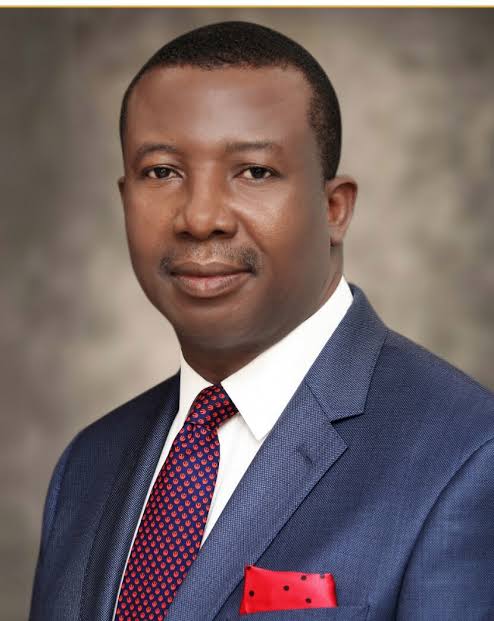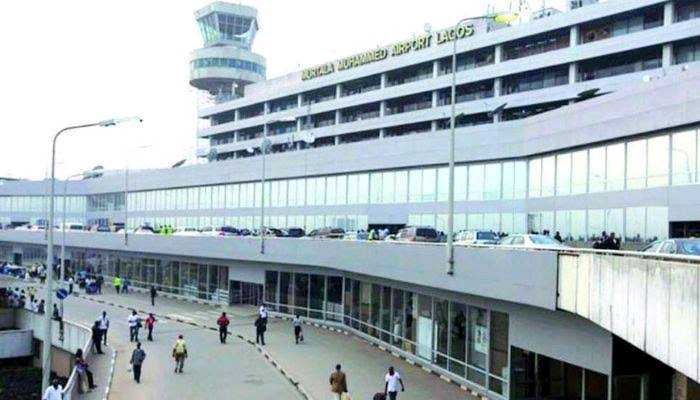By ETIM ETIM
Not many people in Akwa Ibom State know that their chief taxman, Mr. Okon Okon, started his career as a journalist at The Guardian newspaper in Lagos. In February 1988, Okon, then just 23, walked into the newsroom of the newspaper to begin his NYSC primary assignment. He was promptly posted to the Guardian Financial Weekly, the stable’s business publication, where he did analysis of major economic issues of the day. I had arrived the newsroom just a month earlier and was assigned to the Business Desk of the daily newspaper as a business reporter. In no time, Okon and I hit it off. With his in-depth reporting and breakdown of economic issue of that era, the structural adjustment programme (SAP) – Gen. Babangida’s economic policy – and its impacts on manufacturing and other sectors, Okon soon became an important member of the newsroom, then teeming with star reporters. There were only three of us from Akwa Ibom State in the bustling newsroom that time. The other person was Okokon Akpan, also a business reporter. Akpan, also from Uruan, later joined the Securities and Exchange Commission (SEC) and retired as a director 10 years ago.
But Okon Okon preferred banking, and soon after his service year, he took to banking. He rose quickly to become a General Manager at Wema Bank, a position he held till April 2018 when Gov. Udom Emmanuel appointed him the Executive Chairman of Akwa Ibom Internal Revenue Service (AKIRS). But he’s still a proud member of The Guardian family, contributing regularly to some of the worthy causes we embark upon. Since our first meeting in The Guardian’s newsroom, Okon and I have maintained a good relationship, but it was only this afternoon that I visited him in his office for the first time since he took the job. Although I had been to AKIRS several times to transact some businesses, I never bothered to go up to his office.
‘’How do you cope with the fact that the taxman is always the most hated member of the elite class’’, I asked him as I sipped coffee. We laughed. He took time to explain his contributions in the last seven years plus. The state’s IGR has grown significantly, he said, but declined to give figures. From other sources, I understand that it now stands at N8 billion per month, up from N2.8 billion in 2018. He has upgraded the facilities at AKIRS, improved its technology; built a modern tech center; changed the work environment and enhanced staff training and productivity.
Following series of staff training, AKIRS has emerged as one of the well-prepared tax agencies in the country that is set for the implementation of the new Tax Reforms Acts. For four hours every week, board members and management staff of AKIRS are immersed in intensive capacity-building programme designed to expose them to the rudiments of the new legislations known as Tax Reforms Acts, which were signed into law by President Tinubu on June 26. They are: Nigeria Tax Act (this brings all laws relating to taxation in the country into one piece of legislation); Nigeria Tax Administration Act (provides legal framework for tax administration, including governance structure, for tax authorities at all levels of government (federal, states & LGCs) in the country.
It also establishes the Office of the Tax Ombudsman); Nigeria Revenue Service (changes the name of Federal Inland Revenue Service to Nigerian Revenue Service to signify the role the agency plays) and Joint Revenue Board Establishment Act (formerly Joint Tax Board). The new laws come into effect on January 1, 2026.
There has also been massive investment in technology and automation of processes at AKIRS. A state-of-the-art digital centre has also been built in preparation for the new tax reforms. The facility houses the new and bespoke tax management system which is capable of integrating with the Joint Tax Board technology platform as required by the new Tax Administration Act, 2025 and also with the State’s Akwa-GIS and AkwaRemit/Treasury Single Account platform.
“We are set for the implementation of the new laws. As tax managers, we therefore must have a good working knowledge of the new Acts and be able to run with them”, Okon announced last week after a board meeting. The automation of tax processes in Akwa Ibom is essentially to improve system efficiency and align AKIRS operations with the national technology platforms. At the national level, the Joint Tax Board (JTB), the umbrella body for tax administration in the country is also organizing streams of retreats and workshops for Executive Chairmen and Directors of tax authorities across the 36 States of the Federation and the FCT.
A Fellow and Council Member of the Chartered Institute of Taxation of Nigeria (CITN) and member of the Presidential Committee on Fiscal Policy and Tax Reforms in Nigeria, Okon acknowledges that his public-sector responsibilities since 2018 have been broad, enriching and have given him opportunities to make impacts at his communities in Uruan LGA. ‘’I couldn’t have done so much for my people if I were still in banking’’, he said.
Okon is one of my few childhood friends who are still contributing to the development of Akwa Ibom State. I will soon feature another one.



